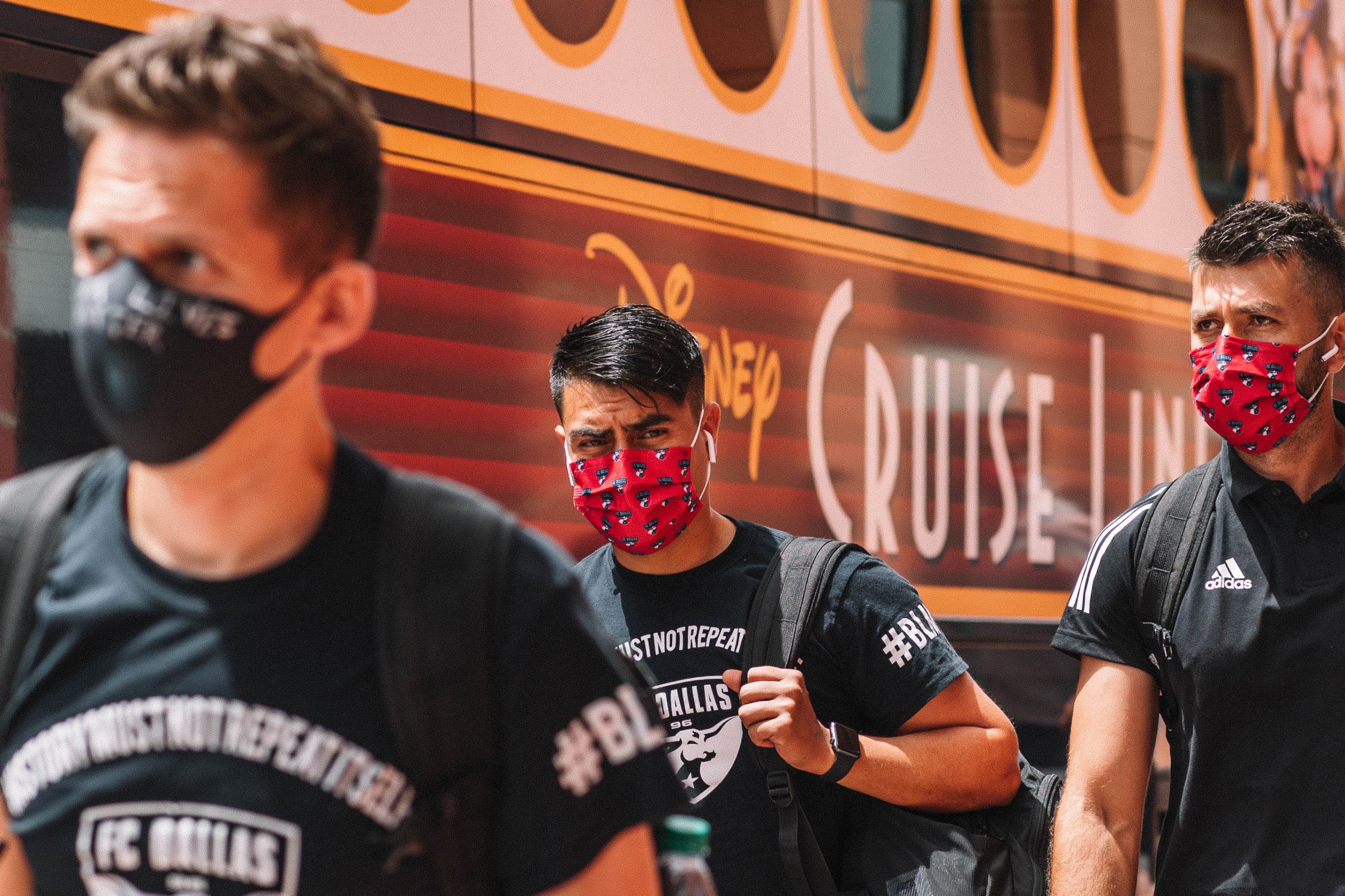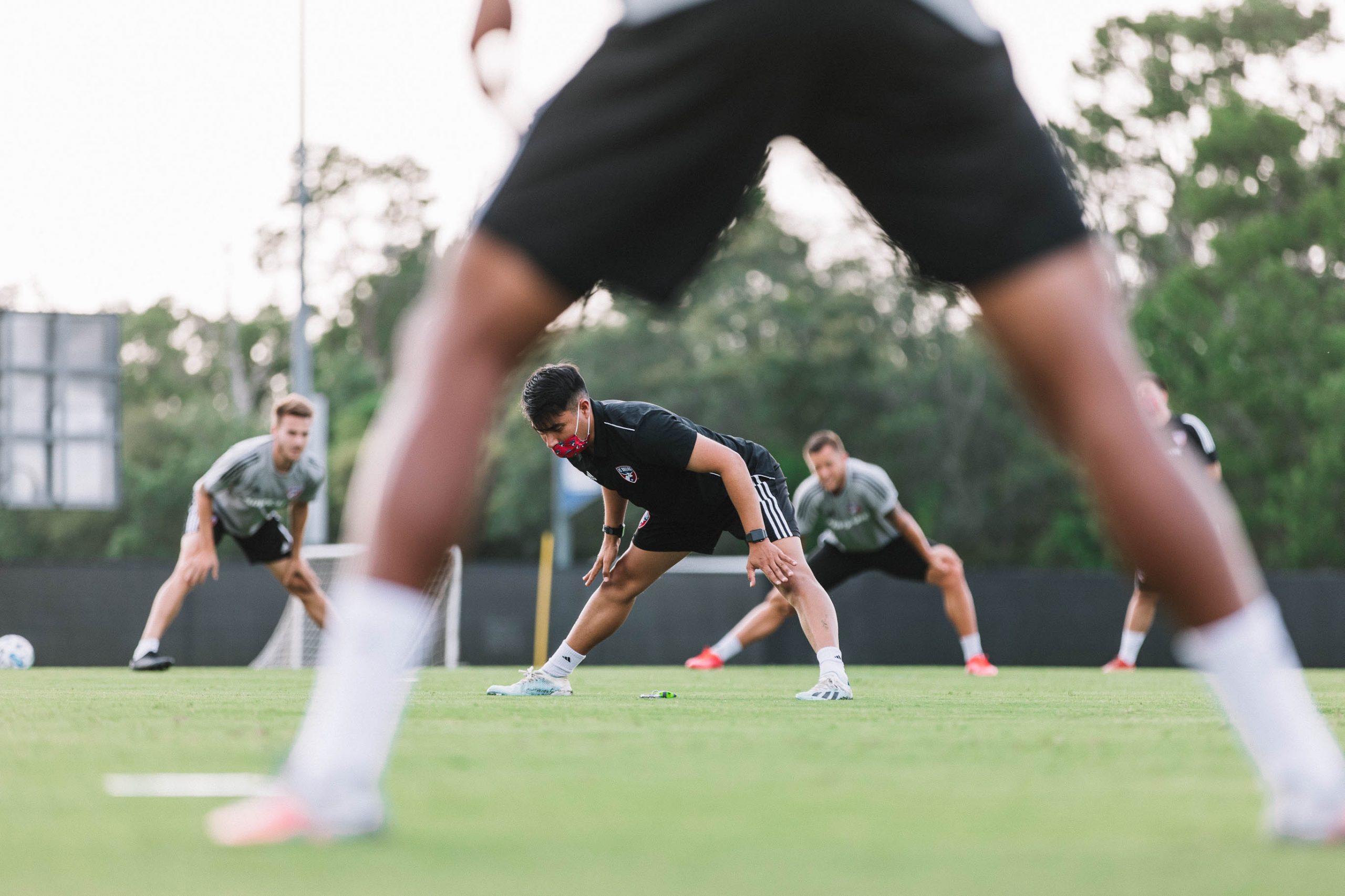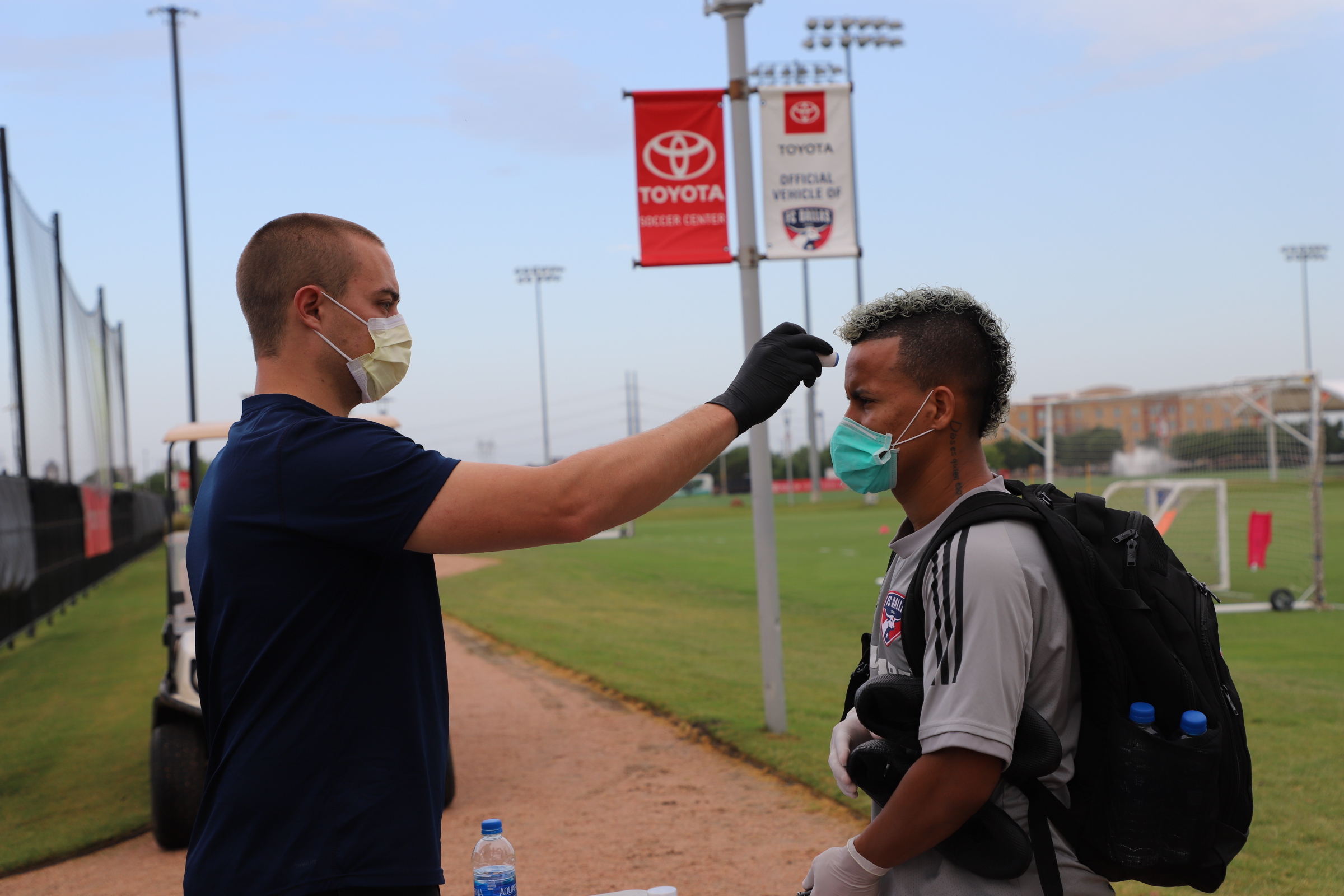The 2020 season is already far off the original script that was written for the season. The COVID-19 pandemic has affected all aspects of life and that is true for FC Dallas as well. The players and staff went from regular training to a shutdown that at the time had no foreseeable end.

FC Dallas Head Athletic Trainer & Rehab Coordinator Tracy Colman says that for the medical and performance staff, the shutdown in March caused a big change in their normal routine.
“We were used to seeing guys every day, checking in on them, and doing that,” Coleman says. “Then, basically overnight, we are checking in on them over FaceTime, Zoom, text-messages, whenever we can. We lost the ability in March to have physical contact with them and it definitely made our jobs more challenging.”
MLS’s decision to suspend play came quickly after the NBA became the first major sports league in the US to do so. At the time of the shutdown, FC Dallas was finalizing their last training session before heading to New York for a match against NYCFC.
While everyone wondered when play would return, the performance staff focused on keeping the players in their best physical condition without being able to see them every day.
FC Dallas Athletic Performance Coach Vander Salas says player workouts became virtual while being confined to their homes and local parks. “I decided to do everyday videos Monday through Friday and they would usually have workouts in the afternoon,” says Salas of the plan put into action. “We were having double sessions every day.
“The first session in the morning was based on exercising with the ball at their local parks, individual training, and in the afternoon it was prevention exercises on Zoom,” Salas explains. “We would monitor all those trainings in the mornings with GPS we provided to the boys and equipment so they would have stuff do to with the videos.
The key, according to Salas, was finding a way to make it competitive. “We also created a point system with the GPS data – where I grouped the boys by their position – and based on the intensity of their GPS data they would earn points. That’s the way they were competing and I knew they were working.”

For the medical staff, it became a challenge to check in on players; especially those that developed nagging discomfort or documented concerns. While FC Dallas started the shutdown with no players rehabbing from injury, the medical staff wanted to maintain the injury free roster.
For Coleman, losing the physical interaction with players and having the ability to do a quick evaluation made things difficult. “That was honestly the hardest part for us. We are so used to the guys coming in every morning saying ‘this is sore, this is hurting me’ and us taking them over and doing a full hands-on evaluation.”
“During the shutdown, when everything was over Zoom and FaceTime, it made it really difficult to do any sort of evaluation that we needed to,” Colman says. “That’s when regular check-ins and increasing our regular communication became so important because, without that, I honestly don’t know if we would’ve made it through.”
When players returned to training, the performance staff needed to understand how the shutdown physically impacted their team. Different performance tests were run to understand the player’s aerobic capacity, muscle mass density, and physical capabilities.
“We lost twenty percent of our one hundred [percent] but it wasn’t that bad,” Salas says of the fitness drop off. “We started to re-adapt again.”
“I can tell you that we lost the most technically [with the ball], but I wasn’t worried about that because the guys are pro players. They are technical, and I knew that they were going to get it back again quick, but I was more worried about the physical.”
“It was a lot of work, to be honest, watching the players’ videos, because we figured out the player’s specific needs and that even meant the goalies were getting special video,” Salas says of the individualized videos they were putting together. “It was a lot of work but when the boys came back it was worth it. It wasn’t one hundred percent but it wasn’t far from it.”
While FCD was unable to compete in the MLS is Back Tournament, the club did return to play with phase one of the remaining MLS Schedule.
This renewed schedule didn’t allow many days off between matches as FC Dallas was assigned 8 games in 36 days, an average of one game every 4.5 days during the Phase One restart.
Colman says the compact schedule is physically demanding on the players and it highlights the importance of player recovery.
“The schedule is so condensed. So recovery for us becomes so important and it’s really just making sure that we keep up the increased communication that we had with the guys during the shutdown and making sure if they are feeling anything at all – whether its tightness or soreness or whatever it is – that way we can decide if it’s something that we need to be worried about,” Colman explains. “Is it something that we can just watch and let him participate and tolerate it?”

“Right now we’re focusing on the recovery for the starting lineup that is usually always playing and we are also taking care of the guys that are not playing as much,” Salas says of the restart. “We are trying to make sure that we have load for them because it’s a short season, but at the same time, it’s long with all these games every few days. So we need all the healthy players ready for their opportunity.”
For a team that has now gone through three preseasons, the medical staff of Coleman and Jesse Ramirez, along with performance coaches Salas and Stephanie Dominguez, have had different challenges that no one was expecting to face. The challenge of keeping the team healthy and fit for the return to play during and after a global pandemic.
“Tracey and Jesse are doing an incredible job because they’ve almost had to double their responsibilities because they’re in charge of the testing,” says FC Dallas Head Coach Luchi Gonzalez who has nothing but praise for the job his medical staff. “They have to coordinate the testing and help with that on top of treatments, rehab, return to play, prevention things. So I’m really proud to have the medical staff that we have. [They’re] on top of everything with all the added challenges.”
“Vander has been priceless,” Gonzalez says of his head performance coach. “Vander is doing a job of multiple men just helping out with return-to-play protocols with the individuals, team fitness, team warm-ups, team micro-cycles, planning in terms of the week, what our psychical loads and volumes in terms of the objectives.”
“I’m very blessed to have Vander mature and develop with the academy and then the first team. I’m really proud of him and we wouldn’t be at a competitive level without him and the medical staff.”
As FC Dallas continues with the regular season, their fitness will be tested by the trying schedule and same-day travel. While the squad’s work is cut out for them, they have the support and backing of a medical staff that, while not always in the spotlight, continues to tirelessly to care for and prepare the roster for the next challenge.
